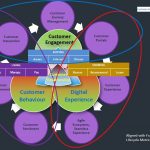Peter Massam
As you will see from my profile, I undertook a major career change after the first ten years. I regret none of it. What I brought with me into a business world were transferrable skills.
Very few of those I met in my first three roles had the confidence to deliver presentations to a large audience. When asked how that was possible, I related how there is nothing scarier than standing up in front of a large class of pupils for the first time. It stood the test of time.
‘Never stop learning’ was one motto I adhered to every day of my working life. There are no quiet moments in business, just periods to reflect on what you don’t yet know.
If you want to become management material, the advice given or enacted on me was:
- Take yourself out of your comfort zone
- Put time aside to attend a week or two’s training offsite, not in the office
- Keep asking questions of those you manage or others until they say ‘I don’t know’. Then ask who you need to speak to that will know. Repeat until you have all the information to hand.
- Find out what your team members are likely to be good at and give them responsibilities which exploit their hidden talents
- Promote them to others and take joy in their new-found achievements
- Nurture their career, no matter where they go next. Being part of a team never ends.
Much is made about how machines will take over human jobs. While repetitive tasks are undertaken by intelligent robotics and therefore no longer dog the lives of many front line workers, it is true that many more have been created in monitoring, designing or planning the execution of the same robotics. Take the BMW Mini factory in Oxford that has a very high level of automation on its assembly lines. That automation created around 700 new jobs to ensure no single rivet, panel or facia was misplaced that risked wasting materials and time in halting production lines.
As you will see elsewhere, my area was managing and monitoring customer experiences on all kinds of telecoms networks, including mobiles, their applications and response times. My field took Customer Experience to its outer limits of linking it to Customer Value, Customer Trust and Business Assurance. These are very ‘soft’ items in a largely hardware environment. One software requirement needs it to be user-friendly – as soon as you cross over to the customer side, you have to anticipate yours and others’ reactions to anything which is likely to have a negative effect on them.
That soft skill is more closely connected with Psychology than any other discipline. It is a very human capability that will be in demand for a long time to come in my opinion. Luckily with flexible, modular degree courses available, it is usually more than possible to include some of these softer skills in your course.
Hope that helps.
Peter

